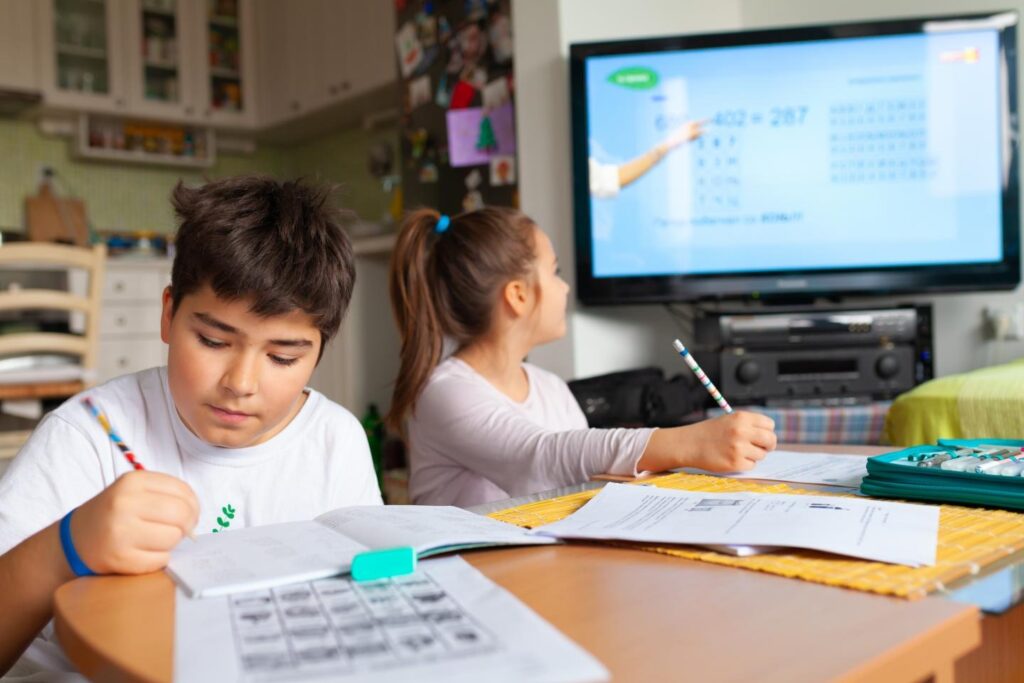REPUBBLIKA CONCERNED ABOUT ‘LOST GENERATION’ OF STUDENTS ABANDONED BY THE EDUCATION AUTHORITIES
Repubblika is deeply concerned at the government’s management of the education sector during the covid pandemic.
The greatest concern is that the government’s failures are resulting in the provision of unequal quality of education to children which varies according to the category of school they attend -state, church or independent -and the resources at its disposal. These failures and inconsistent policies are exacerbating social inequalities which a solid education would help erase. When in particular this is happening during crucial and formative years during the 11-year mandatory program, we are concerned the deficiencies and inequalities that are not being addressed will have a lifelong impact on the lives of the worst-hit students and Maltese society at large.
From the outset, we underline the fact that we’re not ourselves a body of educators or experts in the education profession. We feel that a democracy that fails in delivering universal education is a democracy that is doomed to fail altogether. Education should be the great leveller, it is a tool to even out social inequalities and to empower citizens to be informed, active, fulfilled and successful. We, therefore, make these observations in the sincere hope that they may contribute to a national effort to fulfil our obligation as a society to our young.
Our first consideration is that education is a universal right of all children and it is incumbent on the government to ensure that right is universally respected. We do not suggest that the government can be blamed for the challenges caused by the coronavirus pandemic. But we do submit that it is the responsibility of the government not merely to ensure that children do not get infected with the virus but that the means adopted to prevent them from getting infected do not in themselves become means to prevent them from receiving the education they are entitled to.
We, therefore, find disturbing the government’s decision to waive the obligation on parents to ensure, on pain of administrative or criminal penalty, that minors in their care of compulsory school age attend school at all times.
The decision to abolish compulsory schooling for the first time since 1946 has been presented as a response to the fears of parents of vulnerable children or parents of children who live with vulnerable persons. While the government is required to give an adequate response to these concerns, absolving itself of the duty to enforce the law on universal and mandatory education is the lazy, irresponsible and frankly wrong answer.
We have seen an unequal response in our school system to these concerns. The government is not acting to reach out to students in state and church schools who are not attending school for whatever reason and are missing out on school days with little or nothing to compensate for the missed education.
We are aware that some church school teachers and other educators have side-stepped their unions who rightly argue that they should be compensated for extra work, and continued to provide children at home with some pre-recorded or supplementary schooling in the cases where this might be helpful to them. Pre-recorded schooling is not adequate in all cases. Other solutions will be needed for younger pupils for whom pre-recorded schooling is inadequate or where a lack of basic IT literacy or the necessary equipment within the household is impeding young children from accessing educational resources.
We are also aware that some parents have decided to spend extra money on remote private lessons to try to fill the gaps. In some cases, this expense, which should be unnecessary if the state provides the full curriculum as it is legally obliged to do, is more than many families can afford. And we know that independent schools have organised remote learning lessons that provide children with a richer educational program than downloadable e-learning materials provided by state schools for their students at home.
But these initiatives, helpful as they are, vary in quality according to the varying initiatives and skills of teachers, school leaders and all other educators, the varying commitment of parents to their children’s education, and the varying enthusiasm and aptitude of students who have to learn without the inspiring and adaptable interaction with human educators in a real-world classroom.
Our discussions with teachers and education professionals warn us that these inequalities will have a devastating impact on the performance of students whose chances of succeeding are being grossly hampered by the intermittent and unreliable quality of the education they are receiving.
Students who could do well with the help of teachers and other educators who keep an eye on them, answer their questions, spot their difficulties even when they don’t speak up, and motivate them to perform up to the level of their abilities, are being abandoned to their fates at home. And where this is happening in families or personal realities where parents cannot or would not make up for the loss in their children’s education, the damage is likely to be irreparable.
We find the government’s distance from, and indifference to, these realities unconscionable.
To begin with, the government has been inefficient in guiding schools on how to keep the virus at bay. The entire summer break for 2020 was lost to whatever delays or wishful thinking were happening within the ministry of education. Last-minute instructions on the eve of the opening of schools were changed dramatically, rapidly and repeatedly, making it harder than it needed to be for school administrators to deliver on time for their pupils, creating uncertainty and an unacceptable delay for the opening of most schools.
Educators tell us that the guidelines that do exist now are in many respects written by people with little to no understanding of life in schools, particularly primary schools where children have an often unspoken but inescapable need for proximity to their teachers and other educators. Also, fictions like “safety bubbles” are frequently burst in inevitable situations like school transport.
The myth that decisions by the education department are allowing children to “socialise” even in covid times, is something that exists only in the education department’s imagination. In most schools, students are not doing any practical work and no art except what they can start and finish at their desks. In some schools, children have very limited opportunity to speak informally with their friends, not even in break-time when they are sat down to eat at their desks. Their ability to make new friends is even more severely hampered. There are no extracurricular activities in most schools, no concerts, no games, nothing that could be described as education through fun.
Some of this cannot be helped given the circumstances outside the control of the authorities. But there has been no discernible effort to provide a national infrastructure or resource pool to mitigate this in any way.
The government ought to be considering educational material for live online lessons for students that stay at home while their colleagues continue their schooling. We know some families can very much afford a computer but would not buy one for their children as much as they would not buy them books. The state should interfere to ensure no children fall behind the digital divide in the same way the state interferes to ensure everyone is literate. Some people cannot afford a computer at home. The government must put up the money needed to make sure that lack of affordability is never a barrier to education.
If children need supplementary online lessons, the government should pay for these. We sympathise with the educators’ unions in their current discussions with the administrators of church schools, but we remind the government that church schools are not allowed to raise fees to pay teachers and other educators. It is for the government to live up to its responsibility in this regard.
The education department should not continue to abdicate its responsibility to enforce compulsory education. In the present circumstances, we expect the department to have a clear account of every single student who is unable to attend classes, to contact their families directly, and to provide, with any means necessary, educational services that are at least as complete as what that student’s classmates are getting in class.
We take a very dim view of resolving the inevitable pressures of the present circumstances by diluting the school curriculum. Officially the government has done away with “less important subjects” like music, art, theatre and technical design. This will only mean we will have less educated children growing out of the covid pandemic which is not a sacrifice we should accept.
Furthermore, fulfilling the requirements of the curriculum in the so-called “more important subjects” has also, as we understand it, become optional particularly in state schools. Perhaps people who do not share our concern about a generation of children growing up without formal learning of music, theatre or technical drawing might be more concerned when they understand that this generation of children includes many who are learning far less mathematics than ought to be expected.
We do not wish to sound as though we underestimate just how difficult the challenges for the education authorities are. We know that thousands of teachers and other educators, thousands of parents, thousands of older students helping their younger siblings at home, hundreds of school leaders and administrators are working night and day to help our young through this pandemic with as little loss to their education as possible.
But we see a remarkable lack of leadership from the authorities. We have not heard the prime minister discuss the subject of education for months even though he claims that “the economy” is important to him. We hope that by ‘the economy’ he not only means the returns he will declare while he’s still seeking re-election to government, but he also means the ability of our children to work productively in the economy of their adult years.
And in Owen Bonnici, we sadly see a minister woefully out of his depth whose only accomplishment has been to ensure he gets no complaints from anyone fined for not sending their children to school.
We expect to see the government leading a national effort to take care of our children and ensure that the vulnerability of their young age does not result in the loss of their education as well as the loss of their health.
We expect to see generous expenditure on teachers’ and other educators’ pay so that the people we entrust with our children are properly compensated. Their work is heroically difficult in the best of times. In these times of the covid struggle we are demanding the impossible from them and it seems we think that after they’ve chosen a career in which they must give up their days for our children, we now expect them to give up their nights as well without additional compensation. Extra work is to be compensated appropriately with extra pay.
We expect, if necessary, to see the mobilisation of support volunteers to work with children, to keep them safe, to ensure their mental and physical health, and to find innovative and safe ways to make sure they live their childhood years to the full.
We expect to see the rapid disbursement of funds for all schools in all sectors to pay for better equipment for remote and live education, to fund safe extra-curricular activities, to rapidly develop programs for socialisation, practical work and artistic expression for children.
Our children deserve much better than what our government is giving them. We expect that to change.




